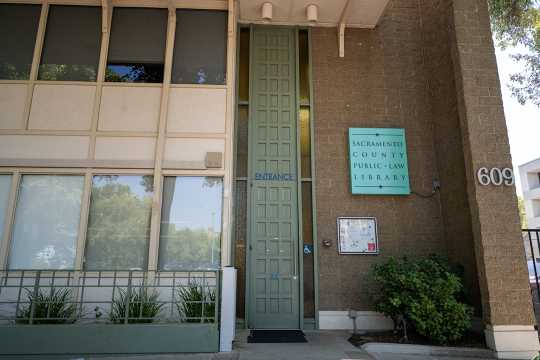White-collar crimes have become a prevalent issue in today’s society. From corporate fraud to embezzlement, these crimes can have significant financial and societal impacts. However, prosecuting individuals responsible for white-collar crimes poses a unique set of challenges that can make it difficult for law enforcement and prosecutors to bring these individuals to justice.
One of the main challenges in prosecuting white-collar crimes is the complexity of the cases involved. Unlike more traditional crimes such as theft or assault, white-collar crimes often involve intricate financial transactions and extensive paper trails. This complexity can make it difficult for law enforcement to gather the necessary evidence to build a strong case against the perpetrators. In some cases, white-collar criminals may go to great lengths to cover their tracks, making it even more challenging for investigators to uncover the truth.
Additionally, white-collar crimes are often committed by individuals who occupy positions of power and influence within corporations or government agencies. These individuals may have access to vast resources and legal teams that can help them evade prosecution or delay the legal process. This can create a power imbalance between the prosecutors and the defendants, making it harder for the justice system to hold these individuals accountable for their actions.
Another challenge in prosecuting white-collar crimes is the lack of resources and expertise within law enforcement agencies. Investigating and prosecuting white-collar crimes requires specialized knowledge and skills that many law enforcement agencies may not have. This can hinder their ability to effectively investigate these crimes and bring the perpetrators to justice. Additionally, white-collar crimes often involve complex financial transactions that may require forensic accounting or other specialized expertise to unravel.
Furthermore, the sheer volume of white-collar crimes can overwhelm the criminal justice system. With limited resources and manpower, prosecutors may be forced to prioritize cases that have the highest likelihood of success, leaving some white-collar crimes uninvestigated or unprosecuted. This can create a sense of impunity among white-collar criminals, encouraging them to continue their illegal activities without fear of consequences.
The nature of white-collar crimes also makes it difficult to detect and prosecute them. Unlike more overt crimes such as robbery or murder, white-collar crimes often involve subtle and deceptive tactics that can be hard to detect. For example, a company executive may use accounting fraud to manipulate financial statements and artificially inflate profits, deceiving investors and regulators in the process. Detecting and proving these types of crimes can be challenging, as they may not leave behind physical evidence or obvious signs of wrongdoing.
White-collar crimes can also be difficult to prosecute due to the lack of cooperation from victims and witnesses. In many cases, victims of white-collar crimes may be hesitant to come forward and testify against the perpetrators, out of fear of retaliation or damage to their reputation. Additionally, witnesses with insider knowledge of the crimes may be reluctant to cooperate with law enforcement due to their own involvement or complicity in the illegal activities. This lack of cooperation can hinder the prosecution’s ability to build a strong case and secure convictions against the perpetrators.
In some cases, the legal system itself can pose challenges to prosecuting white-collar crimes. The burden of proof in criminal cases is high, requiring prosecutors to establish guilt beyond a reasonable doubt. This can be difficult in white-collar cases where the evidence may be circumstantial or complex. Additionally, white-collar criminals may have access to experienced defense attorneys who can exploit legal loopholes or procedural errors to undermine the prosecution’s case.
Despite these challenges, prosecuting white-collar crimes is essential to maintaining the integrity of the financial system and holding individuals accountable for their actions. The consequences of white-collar crimes can be far-reaching, affecting not only the victims directly involved but also the broader economy and society as a whole. Therefore, efforts must be made to overcome the obstacles to prosecuting these crimes and ensure that those responsible are held accountable for their actions.
One way to address the challenges of prosecuting white-collar crimes is to increase collaboration and cooperation between law enforcement agencies, regulatory bodies, and other relevant stakeholders. By sharing information and resources, agencies can more effectively investigate and prosecute white-collar crimes, leveraging their combined expertise and capabilities to build stronger cases against the perpetrators. Additionally, increased training and education on white-collar crime detection and prosecution can help law enforcement agencies to better understand the intricacies of these crimes and develop the skills needed to effectively investigate and prosecute them.
Another approach to addressing the challenges of prosecuting white-collar crimes is to strengthen regulations and enforcement mechanisms aimed at preventing these crimes from occurring in the first place. By implementing stricter financial regulations and oversight, governments can create a deterrent for potential white-collar criminals and make it harder for them to engage in illegal activities without detection. Additionally, providing whistleblower protections and incentives can encourage individuals with knowledge of white-collar crimes to come forward and report them to authorities, helping to expose and prosecute these crimes.
In conclusion, prosecuting white-collar crimes poses a unique set of challenges that can make it difficult for law enforcement and prosecutors to bring the perpetrators to justice. The complexity of these cases, the power dynamics involved, the lack of resources and expertise, the difficulty in detecting and proving the crimes, the lack of cooperation from victims and witnesses, and the legal hurdles all contribute to the challenges of prosecuting white-collar crimes. However, efforts must be made to overcome these obstacles and ensure that those responsible for white-collar crimes are held accountable for their actions. By increasing collaboration and cooperation, strengthening regulations and enforcement mechanisms, and providing training and education on white-collar crime detection and prosecution, we can work towards a more effective and just system for addressing white-collar crimes and protecting the integrity of the financial system.

